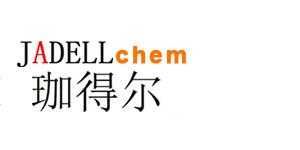Recombinant Human Neuroserpin (CHO-expressed) 是丝氨酸蛋白酶抑制剂家族成员,在海马中的突触可塑性和记忆形成中起重要作用。
Synonyms
rHuNeuroserpin; Peptidase inhibitor 12; Serpin I1; SERPINI1 ; 重组人 Neuroserpin 蛋白 (CHO 细胞表达)
Species
HumanSource
CHO Accession
Q99574 Gene ID
5274 Molecular Weight
40-45 kDa AA Sequence
TGATFPEEAI ADLSVNMYNR LRATGEDENI LFSPLSIALA MGMMELGAQG STQKEIRHSM GYDSLKNGEE FSFLKEFSNM VTAKESQYVM KIANSLFVQN GFHVNEEFLQ MMKKYFNAAV NHVDFSQNVA VANYINKWVE NNTNNLVKDL VSPRDFDAAT YLALINAVYF KGNWKSQFRP ENTRTFSFTK DDESEVQIPM MYQQGEFYYG EFSDGSNEAG GIYQVLEIPY EG Biological Activity
The ED50 is <2 μg/mL as measured by rat C6 cells, corresponding to a specific activity of >500 units/mg. Appearance
Lyophilized powder. Formulation
Lyophilized after extensive dialysis against PBS. Endotoxin Level
0.2 EU/μg, determined by LAL method. Reconstitution
Reconstitute the lyophilized recombinant Human Neuroserpin (CHO-expressed) (rHuNeuroserpin) to 100 μg/mL using ddH2O or PBS. Storage & Stability
Lyophilized recombinant Human Neuroserpin (CHO-expressed) (rHuNeuroserpin) is stored at -20°C. After reconstitution, it is stable at 4°C for 1 week or -20°C for longer. It is recommended to freeze aliquots at -20°C or -80°C for extended storage. Shipping
Room temperature in continental US; may vary elsewhere. Background
Neuroserpin is a member of the serpin family of serine protease inhibitors predominantly expressed in the nervous system. Neuroserpin plays an important role in synaptic plasticity and memory formation in the hippocampus. Neuroserpin expression is particularly prominent at late stages of neuronal development in most regions of the central nervous system (CNS), whereas it is restricted to regions related to learning and memory in the adult brain[1]. |



